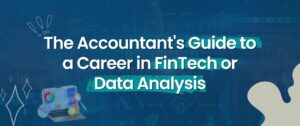
Introduction: Why Now is the Best Time to Learn to Code
Technology is shaping every part of our lives—from the way we shop to how we communicate and work. As demand for digital solutions increases, so does the need for skilled developers. The good news? You don’t need a computer science degree or expensive bootcamp to start your journey. Thanks to the internet, some of the most powerful learning tools are now completely free.
Why Choose Coding as a Career in 2025

Becoming a developer today offers more opportunities than ever. From full-time employment to freelance contracts and startup ventures, the possibilities are vast. Developers are not only well-paid, but they also enjoy flexible work environments, often working remotely or with international clients. For anyone willing to invest time and effort, coding offers a clear and rewarding career path.
The Power of Free Resources
One of the greatest advantages of learning to code today is accessibility. Free resources eliminate the financial barrier that once made tech careers unreachable for many. These platforms offer structured curriculums, hands-on projects, and supportive communities—without any cost. Whether you’re a student, career-switcher, or hobbyist, there’s no excuse not to start learning.
Top 10 Free Online Resources for Learning to Code
1. FreeCodeCamp
FreeCodeCamp is one of the most comprehensive free coding platforms available. It provides thousands of hours of lessons in topics like web development, data structures, APIs, and machine learning. You can earn certifications as you complete real-world projects, making it a perfect choice for beginners and intermediate learners alike.
2. The Odin Project
Designed for those looking to become full-stack developers, The Odin Project offers a full curriculum that covers HTML, CSS, JavaScript, Git, and backend technologies. Its emphasis on project-based learning and real-world workflows helps learners build practical skills from day one.
3. W3Schools
W3Schools is a go-to resource for beginners. It covers foundational web development topics like HTML, CSS, JavaScript, SQL, and more. The site’s interactive “Try it Yourself” editor allows you to write and test code in your browser, making it easier to practice what you learn.
4. CS50 by Harvard (via edX)
CS50 is Harvard University’s introduction to computer science, available for free on edX. The course focuses on computational thinking, problem-solving, algorithms, and foundational programming skills. While it’s more academic than others, it offers a deep understanding of how software and systems work.
5. Coursera (Free Audit)
Coursera offers university-level courses from institutions like Stanford and companies like Google. While many courses come with a fee for certification, most can be audited for free. Courses like Meta’s Front-End Developer program or Google’s Python Automation course are highly rated and beginner-friendly.
6. Khan Academy
Khan Academy is well-known for its interactive lessons and simple explanations. Its computer programming section is great for young learners or absolute beginners. Topics include JavaScript, game development, and basic algorithms, all taught in a step-by-step manner.
7. GitHub
GitHub is not just a code repository; it’s a learning hub. Exploring open-source projects on GitHub allows you to understand how real applications are structured. You can contribute to ongoing projects and even showcase your own work to build a strong portfolio.
8. Stack Overflow
Stack Overflow is one of the most important platforms for developers at any stage. It’s a question-and-answer site where millions of developers help each other solve coding problems. Even if you’re not asking questions, you can learn a lot just by browsing solutions and explanations from experienced programmers.
9. YouTube Channels
YouTube is packed with coding tutorials and crash courses. Channels like Traversy Media, The Net Ninja, and Fireship deliver high-quality content for free. Whether you want to master JavaScript, learn backend development, or explore React or Python, these creators provide clear and engaging lessons.
10. Mozilla Developer Network (MDN)
MDN is the official documentation resource by Mozilla. It offers detailed guides and reference material on HTML, CSS, JavaScript, and browser APIs. Unlike other resources, MDN focuses more on documentation than step-by-step tutorials, but it’s invaluable for learning how things truly work under the hood.
Choose Your Learning Path: Frontend, Backend, or Full-Stack
Frontend Development
Frontend developers create the parts of websites and apps that users interact with. To start, learn HTML, CSS, and JavaScript. From there, explore frameworks like React or Vue to build modern interfaces. Understanding responsive design and accessibility will also give you an edge.
Backend Development
Backend developers handle the logic, servers, and databases that power applications. Popular languages include Node.js, Python, PHP, and Java. You’ll also need to learn about REST APIs, databases like MongoDB or PostgreSQL, and authentication systems.
Full-Stack Development
Full-stack developers can handle both frontend and backend tasks. This path allows for greater flexibility and deeper problem-solving skills. Full-stack development often involves using technologies like the MERN stack (MongoDB, Express, React, Node) or Python with Django or Flask.
Useful Tools for Practicing Code
Practicing what you learn is essential, and several free tools make this easy. Platforms like CodePen, Replit, and JSFiddle let you write and run code instantly in your browser. These tools are perfect for testing small scripts or experimenting with new ideas.
For more advanced projects, Visual Studio Code (VS Code) is a free desktop code editor used by professionals worldwide. It supports multiple languages, has a wide range of extensions, and integrates easily with GitHub.
Staying Consistent and Motivated
The biggest challenge in learning to code is staying consistent. Set realistic goals, like coding for 30 minutes a day. Build small projects to apply what you’ve learned—things like calculators, weather apps, or personal portfolios.
Joining communities on Reddit, Discord, or Twitter can also help you stay accountable. Sharing your journey, asking for help, and contributing to discussions can provide motivation and support.
Conclusion: The Future is in Your Hands
There’s never been a better time to become a developer. With so many free resources at your fingertips, all it takes is dedication and curiosity. You can start learning today, build real projects, and slowly shape a career that gives you flexibility, income, and purpose.
Choose one platform, commit to learning regularly, and keep building. The skills you gain today can change your life tomorrow.
Ready to Start Your Coding Journey?
At Codeed Labs, we believe in learning by doing. Whether you’re exploring frontend, backend, or full-stack development, we’ve got the tools, tutorials, and guidance to help you succeed.
Build your skills, grow your portfolio, and turn your passion into a profession—one project at a time.
👉 Visit Codeed Labs and start building your future today.
Frequently Asked Questions
1. Do I need a degree to become a developer?
No, many developers have landed jobs or started successful businesses without formal education. Skills and projects matter more than credentials in most cases.
2. Are free platforms enough to get hired?
Yes, if you follow a structured path, build projects, and stay consistent, you can absolutely get job-ready using only free resources.
3. How long does it take to become a developer?
Depending on your dedication, it could take anywhere from 6 to 12 months to become proficient enough for a junior role or freelance work.
4. What is the best programming language to start with?
JavaScript is great for web development beginners. Python is another excellent choice for general-purpose programming and automation.
5. How do I stay motivated while learning?
Set goals, build things you’re interested in, track your progress, and connect with a community of learners to stay inspired.
Table of Content
 5.0
5.0
Unlock your new design team today
Get a team of skilled professionals and all the benefits that come with top-grade in-house designers—for a flat fee.
Book a free call


